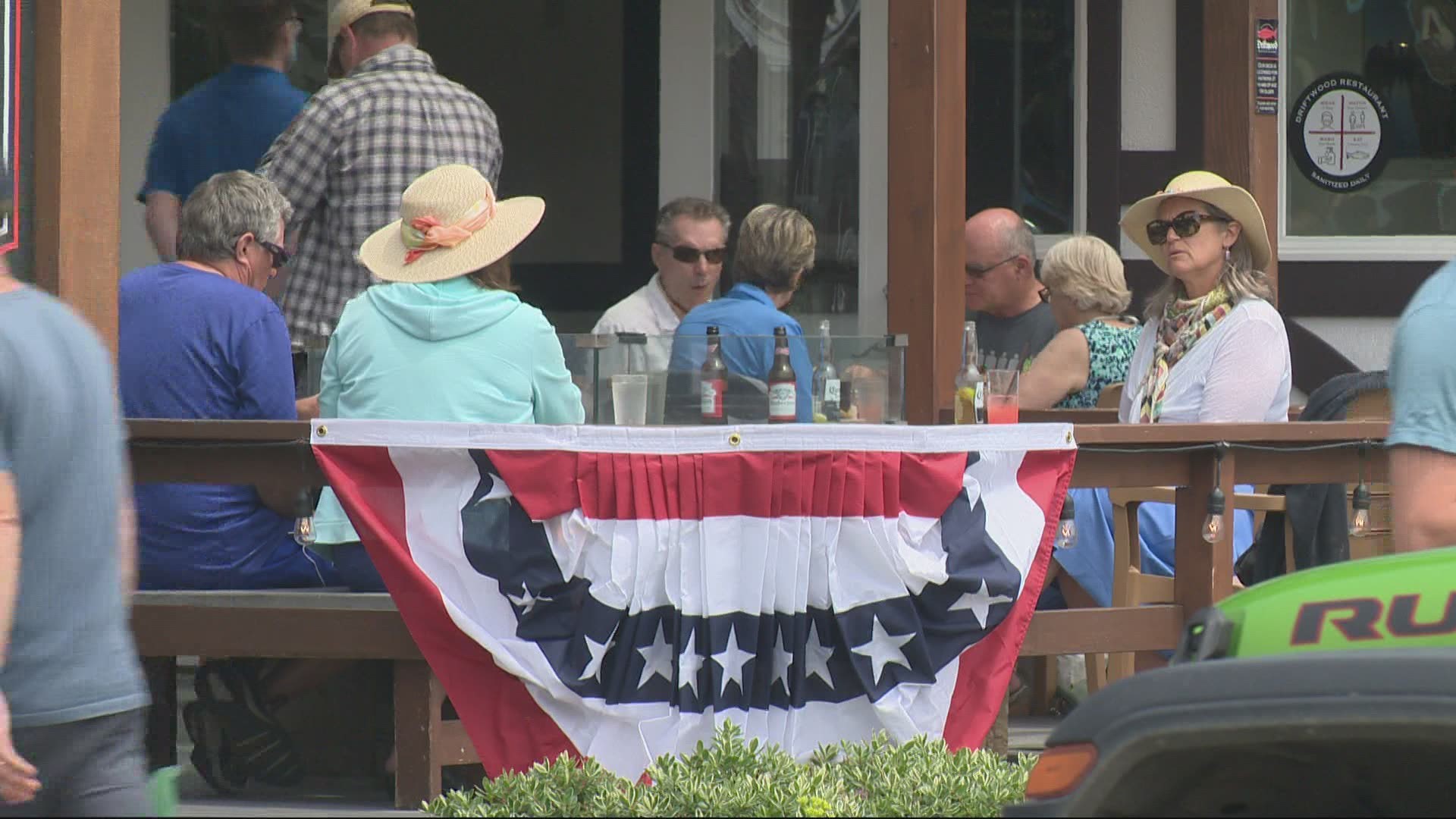CANNON BEACH, Ore. — A proposed tax in Cannon Beach on the Oregon coast would make food and drinks more expensive. It's part of an effort to raise money for handling emergencies like fires and water rescues.
Cannon Beach Fire District Chief Marc Reckmann says his agency is badly underfunded. He's one of three paid staff. He oversees 15 volunteers and his agency covers a stretch of land 24 miles long and a quarter of a mile wide.
"We're a full service district, we cover fire, EMS and then a lot of technical rescue," Reckmann said. "A lot of surf rescue and rope rescue--- that's where a lot of money goes to is our technical rescue teams. It takes a lot of gear and training to keep those technical rescue teams going."
With thousands of people visiting Cannon Beach every year, Reckmann says a vast majority of his calls are helping tourists.
"In 2020, 77% of our calls were on tourism. They had nothing to do with people that live, work in the fire district."
From January to the end of May in 2021, Reckmann says calls have risen by more than 40%.
The city of Cannon Beach says this proposed tax would bring in about $1.2 million. The funds would be split between the city and the district, but ultimately it's up to the city to decide how the revenue is split.
The city already has a lodging tax, but it doesn't generate money for the fire district to fight fires or respond to emergencies. Some of that money gets spent on promoting tourism.
"The city gets money from lodging tax, the fire district doesn't get any of that money. We get nothing from tourism," Reckmann says.
He says the fire district has one of the lowest permanent tax rates in the state of Oregon for a fire district--- at only 35 cents.
Funding for the district comes from property taxes. Levies are only good for 5 years. The most recent levy passed last year was for 35 cents per 1,000 square feet. Another levy in 1999 has been renewed each time it's come up.
"But even together with those two levies and the permanent tax rate, our tax rate's only 89 cents a thousand. If you were to look at the north coast area, a fire district typically, the average is a $1.37. You go inland and look at other fire districts, it's $1.50 to $3 a thousand," Reckmann said.
In 2019, Reckmann approached the city council asking them to consider a 5% food and beverage tax, a similar tax seen in both Ashland and Yachats. Now after a couple years of research, he says the tax appears to be gaining momentum-- but not everyone is on board. Some business owners in Cannon Beach argue this proposed tax is not fair.
"The city and fire department are trying to put this whole load on 27 restaurants in Cannon Beach," says Paul Nofield, owner of Driftwood Restaurant and Lounge in Cannon Beach.
"There's no galleries, frame shops, clothing stores and it just doesn't seem fair to me."
Nofield says this would not only tax tourists, but also local residents as well.
"They're trying to say that it's a tourist tax, which we really shouldn't be taxing our tourists that much, but everybody that lives in Cannon Beach that goes out dining in Cannon Beach would be paying that tax. It's not just a tourist tax, it's a whole city tax."
Some restaurant owners have started signing petitions against the tax. They say if the city plans on considering a tax, it should be for all businesses.
"This is a tax that will just keep on getting bigger and bigger and bigger," Nofield said.
The soonest this tax could be on the ballot is November 2021.

